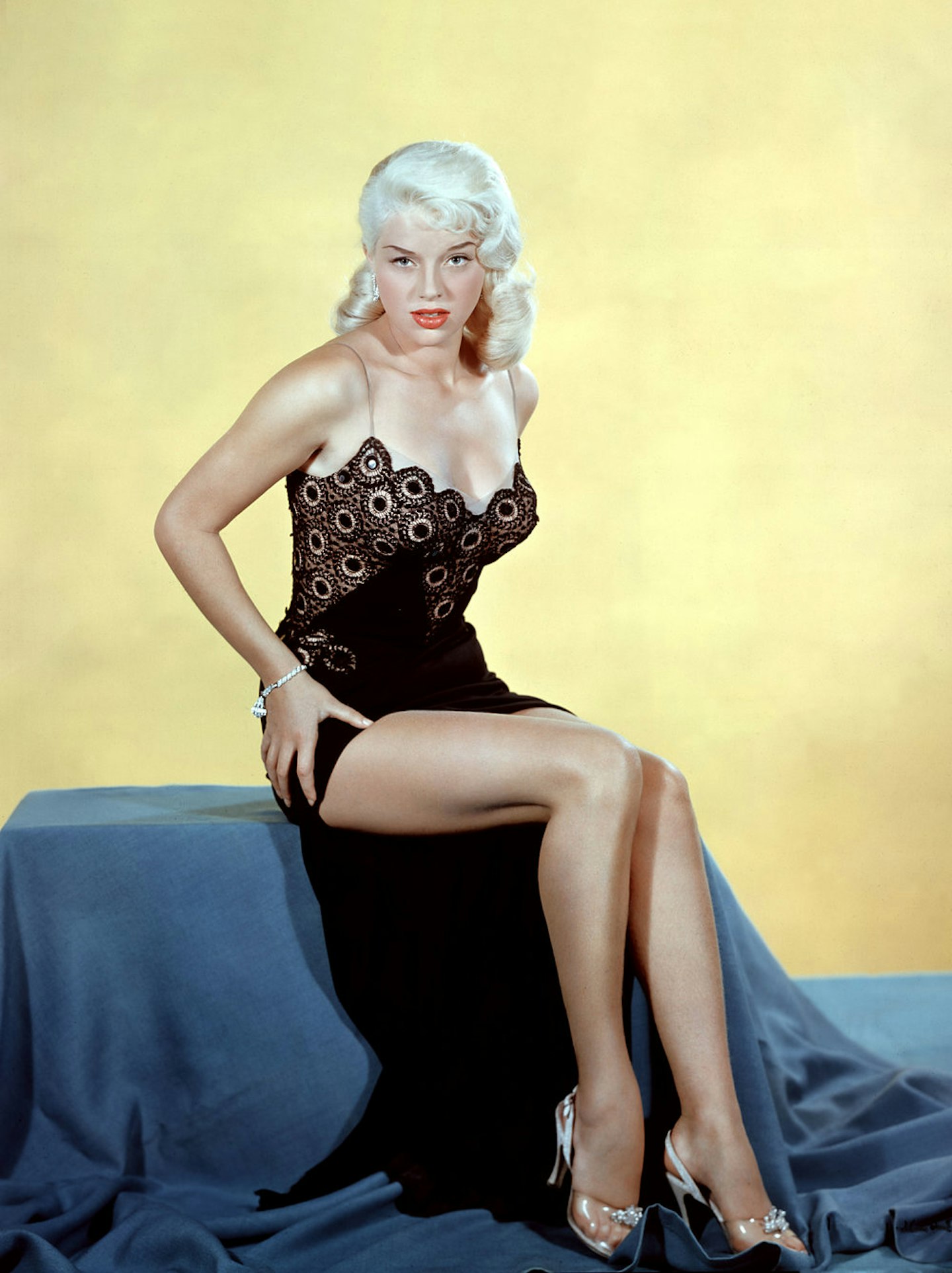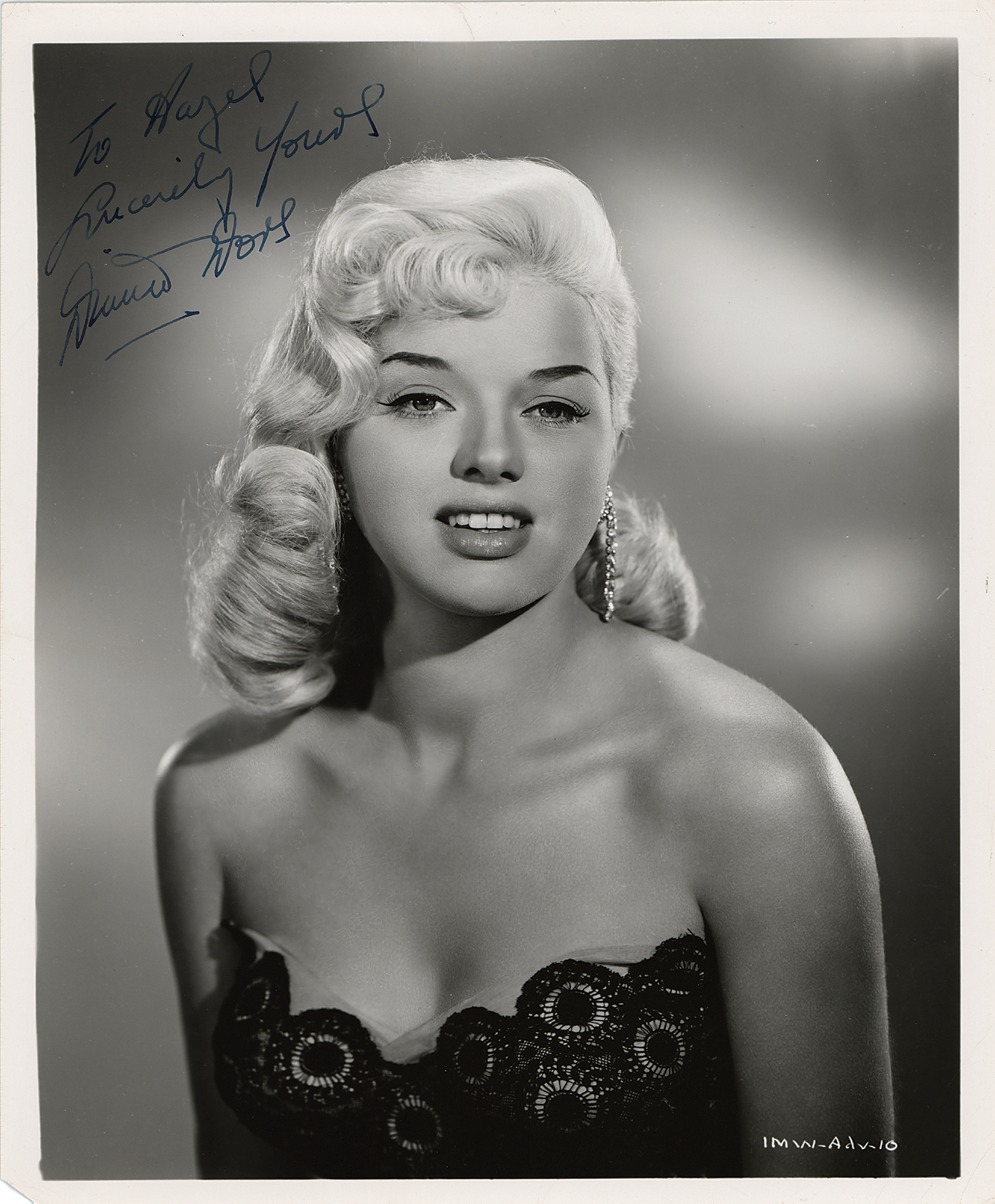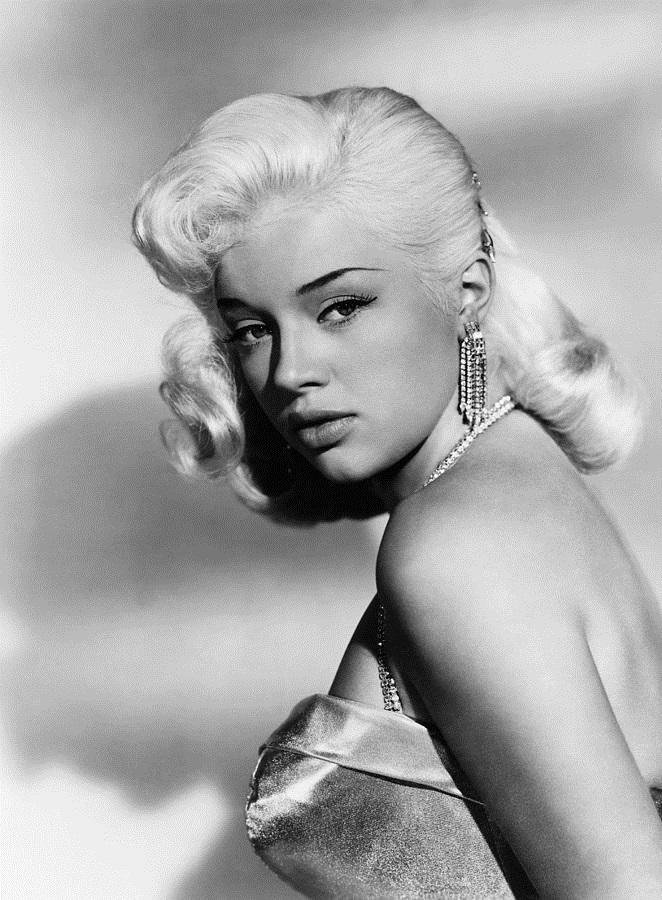Diana Dors: The British Blonde Bombshell Who Defined An Era
Diana Dors, a name that still resonates with an undeniable sparkle, was far more than just a pin-up. She was a force of nature, a trailblazer, and an enduring symbol of British glamour and resilience. While some might only recall her as the "British Marilyn Monroe," her legacy is a rich tapestry woven with groundbreaking performances, a bold public persona, and a surprising depth that continues to captivate and challenge perceptions even decades after her passing. This article delves into the fascinating world of Diana Dors, exploring her impact on popular culture, her remarkable career, and why her story remains incredibly relevant in understanding the evolution of celebrity and female empowerment.
In an age where celebrity is often fleeting, Diana Dors carved out a niche that has stood the test of time. Her journey from a small English town to international stardom was marked by a fierce independence and a willingness to defy conventions. From her early days as a provocative screen siren to her later career as a beloved television personality, Dors consistently pushed boundaries, often inviting both adoration and controversy. Her life offers a compelling narrative about fame, public image, and the enduring power of a truly unique personality.
Table of Contents
- The Enduring Legacy of Diana Dors: A British Icon's Story
- Beyond the Glamour: Diana Dors' Diverse Career
- Diana Dors: Personal Life and Public Perception
- Navigating Fame: Critiques and Enduring Influence
- Diana Dors and the "Open Dors" Policy: A Cultural Phenomenon
- Preserving Her Memory: Why Diana Dors Still Matters Today
- Frequently Asked Questions About Diana Dors
- Conclusion
The Enduring Legacy of Diana Dors: A British Icon's Story
Born Diana Mary Fluck in Swindon, Wiltshire, Diana Dors quickly shed her unassuming surname for a more glamorous stage name, a move indicative of her ambition and flair for the dramatic. From a young age, it was clear she was destined for the spotlight. Her striking looks, vivacious personality, and undeniable talent propelled her into the British film industry, where she rapidly became one of the country's most recognizable and talked-about stars. Her career spanned decades, evolving with the changing landscape of entertainment, yet her core appeal remained constant: a blend of raw sex appeal, sharp wit, and an underlying vulnerability.
Personal Data & Biodata: Diana Dors
| Full Name: | Diana Mary Fluck |
| Born: | 23 October 1931, Swindon, Wiltshire, England |
| Died: | 4 May 1984 (aged 52), Windsor, Berkshire, England |
| Occupation: | Actress, Singer, Media Personality |
| Years Active: | 1947–1984 |
| Spouse(s): | Dennis Hamilton (m. 1951; div. 1959), Richard Dawson (m. 1959; div. 1966), Alan Lake (m. 1968; died 1984) |
| Children: | 3 sons |
Early Life and Rise to Stardom
Diana Dors' journey to fame began remarkably early. She enrolled at the London Academy of Music and Dramatic Art (LAMDA) at just 14, lying about her age to gain admission. Her striking looks and natural confidence quickly caught the attention of casting directors, leading to her first film roles in the late 1940s. She quickly became known for her roles in "B" movies, often playing rebellious or seductive characters. It was her ability to project a powerful, uninhibited femininity that set her apart, establishing her as a unique presence in an era still recovering from wartime austerity.
The "British Marilyn Monroe" Persona
The comparison to Marilyn Monroe was almost inevitable. Both possessed a luminous blonde beauty, a voluptuous figure, and an undeniable screen presence that blended innocence with overt sexuality. Diana Dors, however, brought her own distinctly British edge to the persona – a sauciness and a sharp, often self-deprecating wit that distinguished her from her American counterpart. This "British Marilyn Monroe" label, while perhaps reductive, served to elevate her international profile and cemented her image as a leading sex symbol of the 1950s. Films like "Yield to the Night" (1956) showcased her dramatic range, proving she was more than just a pretty face, capable of delivering powerful and nuanced performances that earned critical acclaim.
Beyond the Glamour: Diana Dors' Diverse Career
While her initial fame was built on her bombshell image, Diana Dors consistently sought to expand her repertoire, demonstrating a versatility that many of her contemporaries lacked. She was not content to be typecast, venturing into various forms of entertainment, from dramatic cinema to lighthearted television comedies and even musical performances. This breadth of work highlights her dedication to her craft and her enduring appeal to different audiences.
- Two Babies One Fox
- Camilla Araujo Tape
- Camilla
- Exploring The Life And Legacy Of Gunther Eagleman
- Misty Loman
From Silver Screen to Sitcoms: "Queenie's Castle" and More
Diana Dors' career trajectory saw her transition from leading lady in dramatic films to a beloved figure in British television. While many are familiar with her early film work, her later television appearances showcased her comedic timing and natural charisma. For instance, the early 1970s British sitcom "Queenie's Castle" was a notable vehicle for her. While I was familiar with Diana Dors, I had never heard of or seen "Queenie's Castle" before. Taking a peek at it, it seems like a really interesting early '70s British sitcom, a testament to her adaptability and willingness to embrace new mediums. This shift allowed her to connect with a broader audience, showcasing a more down-to-earth and humorous side that endeared her to the public.
Musical Ventures and Public Appearances
Beyond acting, Diana Dors also dabbled in music, releasing several singles and albums throughout her career. While perhaps not a powerhouse vocalist in the traditional sense, her recordings often reflected her playful personality and became part of her multifaceted public image. Her presence was also a staple in the social scene. It's fascinating to learn that Dusty Springfield and Diana Dors used to hang out at the Gateway Club in Chelsea, affectionately known as "The Gates." This tidbit offers a glimpse into the vibrant social circles of the time and reinforces her status as a prominent figure within British entertainment. Her ability to navigate various facets of the entertainment industry, from film sets to recording studios and exclusive clubs, underscores her enduring presence and influence.
Diana Dors: Personal Life and Public Perception
Diana Dors' personal life was as dramatic and public as her professional one. She married three times, each relationship drawing significant media attention. Her candidness about her experiences, both good and bad, often put her at odds with the more conservative elements of society but also resonated deeply with a public intrigued by her unconventional lifestyle. She was a woman who lived life on her own terms, embracing her sexuality and challenging the societal norms of her time.
Her bold image, however, often invited judgment. Comments like "Her legs were open more than the dors to a free clinic in downtown LA" or the comparison to Mamie Van Doren as "tacky and obvious" highlight the often-harsh scrutiny she faced. These remarks, though crude, reflect a certain public perception of her as overtly sexual and perhaps lacking in refinement. Yet, it was precisely this uninhibited nature that made her a fascinating and, for many, an empowering figure. She wasn't afraid to be herself, even if it meant being misunderstood or criticized.
Navigating Fame: Critiques and Enduring Influence
Like many public figures who push boundaries, Diana Dors faced her share of criticism. The media often focused on her personal life and her provocative image, sometimes overshadowing her acting talents. The perception of her as "tacky" or "obvious" was a recurring theme, particularly when contrasted with more demure stars. However, it's crucial to understand this criticism within the context of the times. In an era where female sexuality was often suppressed or subtly hinted at, Diana Dors was unapologetically overt. This boldness, while drawing censure from some quarters, also paved the way for future generations of female performers to express themselves more freely.
Her influence extended beyond just her image. She was a savvy businesswoman, often negotiating lucrative deals and understanding the power of publicity. She was an early adopter of the concept of personal branding, long before the term became commonplace. Her ability to remain relevant across several decades, adapting her image and career choices, speaks volumes about her intelligence and resilience in the notoriously fickle world of entertainment.
Diana Dors and the "Open Dors" Policy: A Cultural Phenomenon
Perhaps one of the most intriguing and unique aspects of Diana Dors' cultural footprint is the anecdotal claim that she was actually the inspiration for the saying "open dors" policy. While the phrase "open door policy" is a well-established idiom, the idea that Diana Dors' uninhibited and accessible persona, particularly in her early career, could have humorously influenced a play on words is a testament to her pervasive presence in the public consciousness. This isn't about a formal policy but rather a cultural quip that highlights her perceived openness, approachability, and perhaps her willingness to engage with the public in an unvarnished way. It suggests that her image was so impactful and widespread that it seeped into colloquial language, even if in a jocular or slightly risqué manner. This kind of cultural permeation is rare and speaks volumes about her iconic status, where her name could be playfully twisted to describe a certain type of accessibility or lack of inhibition.
Preserving Her Memory: Why Diana Dors Still Matters Today
In an age dominated by fleeting social media trends and rapidly changing cultural norms, it's more important than ever to understand and appreciate figures like Diana Dors. I recently heard some Gen Z girls at my work this week making really snide and unkind comments about Diana Dors, and I really fear for our youth; it’s like they’re ignorant of our shared cultural history. This observation underscores a critical point: without understanding the past, we risk losing valuable context for the present. Diana Dors was a pioneer in many ways, challenging societal expectations for women, navigating the complexities of fame, and ultimately forging her own path.
Her story is a powerful reminder of the evolution of female representation in media, the challenges faced by women in the public eye, and the importance of individuality. She was a woman who owned her sexuality and her ambition in an era that often sought to constrain both. By exploring her life and career, we gain insights into the social history of Britain, the development of the celebrity machine, and the enduring power of a personality that refused to be confined by labels. Her legacy encourages us to look beyond superficial judgments and appreciate the depth and complexity of those who shaped our cultural landscape.
Frequently Asked Questions About Diana Dors
Here are some common questions people ask about Diana Dors:
- Was Diana Dors really the "British Marilyn Monroe"? Yes, she was widely dubbed the "British Marilyn Monroe" due to her similar blonde bombshell image, voluptuous figure, and provocative screen presence in the 1950s. While the comparison was often made, Diana Dors cultivated her own unique persona, characterized by a distinct British sauciness and wit.
- What were some of Diana Dors' most famous films? Some of her notable films include "Yield to the Night" (1956), which showcased her dramatic acting skills, "The Weak and the Wicked" (1954), and "A Kid for Two Farthings" (1955). She also appeared in numerous comedies and later became known for her television work.
- Did Diana Dors have a successful career in America? While Diana Dors certainly had international recognition and made some films in Hollywood, her career didn't reach the same sustained heights in America as it did in the UK. She was often compared to other British stars who tried to make it big in America but perhaps didn't fully break through, such as Cilla Black or Cliff Richard. Despite this, her presence was felt, and she remained a recognizable figure globally.
- What was "Queenie's Castle"? "Queenie's Castle" was a British sitcom from the early 1970s starring Diana Dors. It showcased her comedic talents and marked a shift in her career towards more television-based roles, allowing her to connect with a broader, more family-oriented audience.
- What is the significance of the "open dors" policy reference? The reference to "open dors" policy is an anecdotal and humorous play on words, suggesting that Diana Dors' public image and uninhibited nature were so pervasive that they inspired a colloquialism. It highlights her perceived accessibility and openness, albeit in a playful and somewhat risqué context, reflecting her deep cultural impact.
Conclusion
Diana Dors was a true icon, a woman who lived life on her own terms and left an indelible mark on British culture. From her early days as a provocative screen siren to her later years as a beloved television personality, she defied expectations and challenged conventions. Her story is a testament to resilience, adaptability, and the power of an authentic personality. In an age where understanding historical figures is crucial for appreciating our shared heritage, Diana Dors stands out as a compelling subject whose legacy continues to resonate.
We hope this deep dive into the life and career of Diana Dors has offered you new insights and a renewed appreciation for her unique contribution to entertainment. What are your thoughts on Diana Dors' impact? Do you remember any of her films or television shows? Share your memories and perspectives in the comments below, and don't forget to share this article with others who might be interested in the fascinating world of this British legend!

Diana Dors: life, love and fur bikinis!

Diana Dors Swinging Dors, World Distributors, 1960,, 47% OFF

DIANA DORS ENGLISH FILM ACTRESS AND SINGER PHOT.. | Köp på Tradera